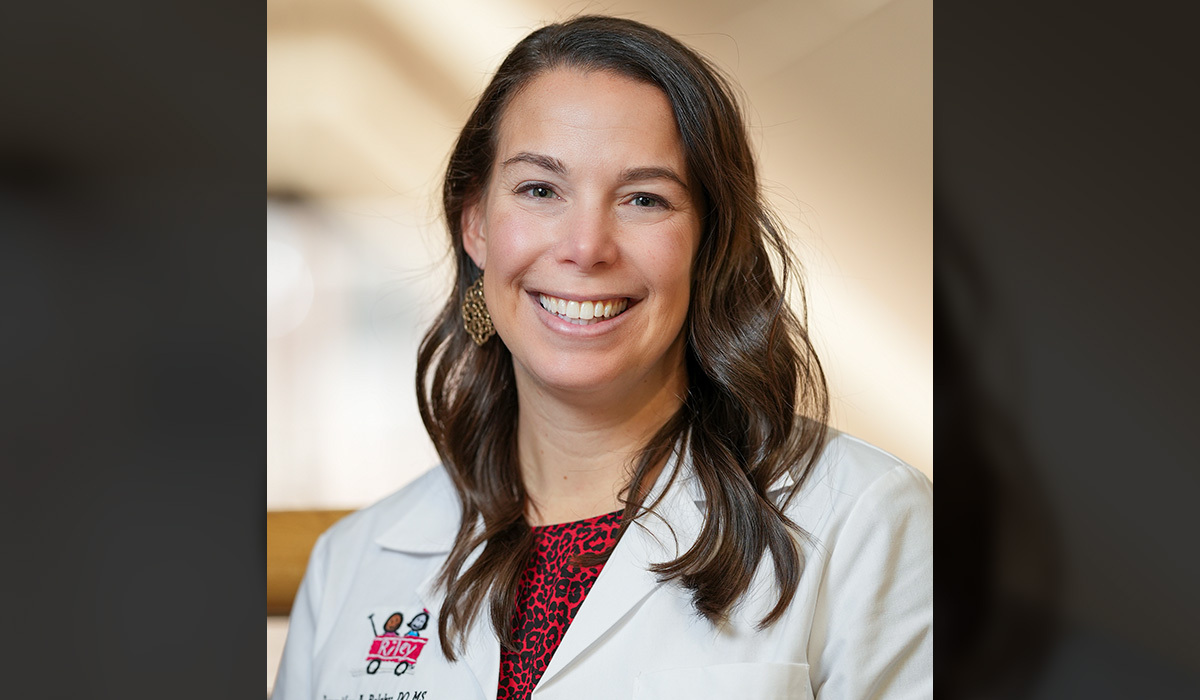RCF Scholar Spotlight: Dr. Belsky

“Supportive care is always at the bottom of the [funding] list when it is at the top of the patient’s list,” says Dr. Jenny Belsky, a Riley Children’s Foundation Scholar.
RCF Scholars are cutting-edge pediatric faculty in the Indiana University School of Medicine who receive funding for professional development and training, including mentorship and protected time to focus on innovative research projects. With the generous support of Riley Children’s Foundation donors, RCF Scholars will continue to push Riley research to new heights.
Dr. Belsky’s area of research focus is in supportive care oncology for children and adolescents with leukemia and lymphoma. “Any side effect that we cause from their chemotherapy, I’m interested in fixing,” she says. She is also the first Tom Goss Scholar, a program created from one family’s desire to create a brighter future for children with cancer.
Because federal funding for the National Institutes of Health does not fully cover every area of research, philanthropic support is more important than ever. Supportive care, in particular, often receives less emphasis than funding for novel treatments and cures. This creates an opportunity for donors to make a meaningful difference. Dr. Belsky struggles with watching her patients endure side effects like nausea and fatigue. “I don’t want to make them a shell of a human at the end of their treatment,” she says. “I want to have a robust, lively kid that can go bike around the park and do the activities that they did pre-cancer.”
In particular, Dr. Belsky focuses on chemotherapy-induced neuropathy, which is damage to the nerves that causes numbness or tingling in the hands and feet. It is nearly impossible to identify via exam until children are facing larger problems like broken bones from tripping and falling. Dr. Belsky’s goal is to find a marker in the blood that can confirm nerve damage through a simple test, allowing for earlier diagnosis and intervention.
“It’s really meaningful to be an RCF Scholar,” she says. “I feel like they recognize the patient experience and the whole patient.” Dedicating funding to supportive care research means she can ease the burden that children are left to deal with after treatment is over.
